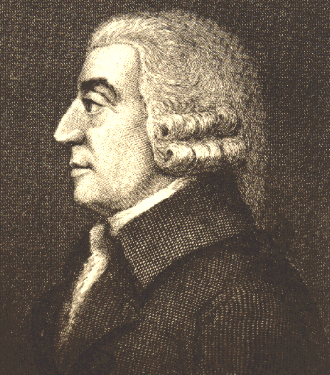Science: The Next Great Division of Labor
The greatest improvement in the productive powers of labour, and the greater part of the skill, dexterity, and judgement with which it is any where directed, or applied, seem to have been the effects of the division of labour.
These are the first words in The Wealth of Nations by Adam Smith. Indeed, the division and specialization of labor was fuel for the Industrial Revolution, and I believe that the world will soon encounter another division of labor, this time in the scientific sector.
ENTER STAGE LEFT: Science Exchange.
Science Exchange, at its core, is a service that provides scientists and laboratories a fast, simple way to find and use equipment at other universities. This is extremely important because some disciplines need to maintain a high level of capital equipment to do their research properly. Just in my laboratory, we own multiple high vacuum metal deposition chambers, furnaces, and pieces of electrical characterization equipment. All of this adds up to millions of dollars worth of investment, with significant maintenance costs. Some of the larger, more expensive equipment (scanning electron microscopes, and the like) is held in shared lab space that anybody can use for a price. Research groups are constantly jockeying to get equipment funding; there are at least three big “wish list” items that I hope our department will be able to pick up soon, all costing upwards of $300,000, some over a million. A service like Science Exchange allows researchers to more easily access beyond the traditional route of signing up for national laboratory time.
On the supply side, this is another great way for universities and research groups to make money beyond applying for and winning grants. Taking any pressure off of lab managers and PIs to constantly run in the rat race for funding can only be good for everyone. If services like Science Exchange become extremely popular, we might just see more space opening up in academia for non-graduate professionals and technicians to work on inter-university projects. However, an idea like this is not without its problems…
The New Factory Worker
To take an example, therefore, the trade of the pin-maker; a workman not educated to this business, nor acquainted with the use of the machinery employed in it, could scarce, perhaps, with his utmost industry, make one pin in a day, and certainly could not make twenty. But in the way in which this business is now carried on, not only the whole work is a peculiar trade, but it is divided into a number of branches, of which the greater part are likewise peculiar trades.
These are the next two sentences from The Wealth of Nations. The words apply as strongly in science today as it did for manufacturing centuries ago: will we be reducing scientists to pin makers? Is this just the natural progression, where skilled labor is replaced by unskilled labor, and eventually automated? Should we even fight over this? I’m interested to see whether this will open up the door to serious science outsourcing, as has happened in the programming industry.
China is alive with possibilities in science, but realizing them is a complicated affair. The country’s fondness for speed — for short-term achievements and, increasingly, short-term profits — has worked relatively well in the chemical and physical sciences and in large-scale genomics, where researchers can systematically tick off the chemical compounds or genetic sequences that they have produced – Neuroscience in China: Growth Factor
For those disciplines, there might just be a sea change. Science Exchange is an outsourcing enabler if I have ever seen one. Finally, what if all science was inter-laboratory? Who owns the work? What would it take for us to divorce ourselves from the secretive, cloistered nature of our research? What would have to change? More on that another time, I think. This post has far more questions than answers, most that I’m not even going to pretend to know the answers to. Only time will tell, all I know is that it’s going to be an interesting ride.
